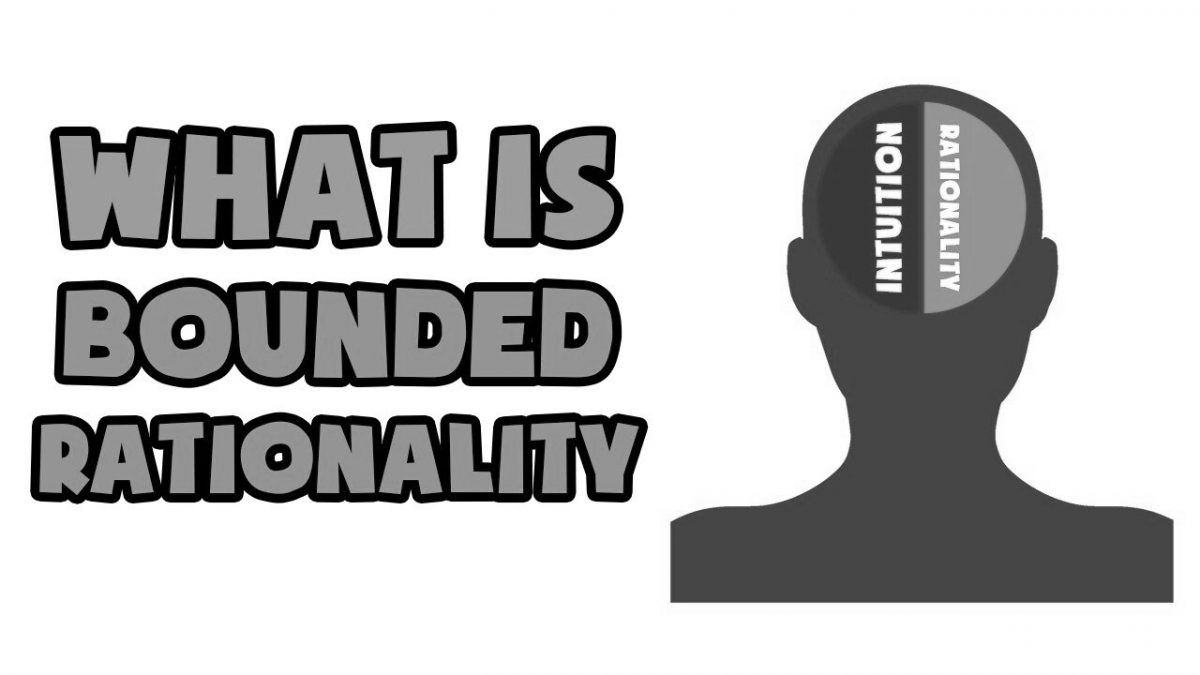Introduction
In our daily lives, we are constantly faced with decisions that shape our personal and professional trajectories. However, the human mind is not an infallible beacon of rationality. Instead, it operates within the boundaries of what is known as bounded rationality. Coined by Nobel laureate Herbert A. Simon, bounded rationality is a concept that recognizes the inherent limitations of human cognition and decision-making processes. It highlights how individuals and groups make decisions that are not perfectly rational, but rather based on a simplified and subjective view of the world. In this blog post, we will delve into the concept of bounded rationality, explore its prevalence in various contexts, understand the psychological biases that contribute to it, and provide strategies to mitigate its influence.
The Essence of Bounded Rationality
Bounded rationality refers to the idea that human decision-making is influenced by cognitive limitations, such as incomplete information, time constraints, and cognitive biases. It acknowledges that individuals cannot thoroughly analyze all available options and outcomes, but instead rely on heuristics and simplifications to arrive at decisions that are “good enough” under the circumstances. This concept challenges the traditional economic assumption of perfect rationality, recognizing that human decision-making is a product of both rational and irrational processes.
The Relevance of Bounded Rationality
Bounded rationality is highly relevant in decision-making processes, as it provides a realistic framework for understanding how individuals and groups navigate complex choices in real-world scenarios. By acknowledging our cognitive limitations, we can better comprehend the factors that shape our decisions and recognize the potential pitfalls of falling into the bounded rationality trap.
Examples of Bounded Rationality
- Personal Life Decisions: Imagine a person deciding to purchase a new car. Instead of objectively evaluating all available options based on factors like price, reliability, and fuel efficiency, they may rely heavily on anecdotal evidence or emotional attachments to a particular brand. This biased decision-making process may lead to a suboptimal choice that does not align with their long-term interests.
- Business Scenarios: In the business world, bounded rationality often manifests itself in the form of confirmation bias. For example, a company may have a strong belief in the success of a new product, leading them to interpret market feedback selectively and ignore warning signs of potential failure. By failing to consider alternative perspectives and disconfirming evidence, the company makes decisions based on limited and biased information, ultimately harming their bottom line.
- Public Policy-Making: Bounded rationality can also affect public policy decisions. Politicians and policymakers may focus on short-term gains or popular opinion, neglecting the long-term consequences of their choices. This myopic decision-making can lead to policies that are politically expedient in the short term but detrimental to the welfare of the society as a whole in the long run.
Mental Biases and Psychological Underpinnings
Bounded rationality is closely intertwined with various mental biases that influence decision-making. Confirmation bias, as mentioned earlier, leads individuals to seek and interpret information in a way that confirms their preexisting beliefs. Anchoring bias causes people to rely heavily on the first piece of information encountered when making decisions, even if it is irrelevant or unreliable. Availability heuristic leads individuals to overestimate the likelihood of events based on the ease with which they can recall examples from memory.
These biases, along with others such as status quo bias, framing effects, and loss aversion, contribute to bounded rationality by distorting our perception of reality and limiting our ability to make fully rational choices. Additionally, cognitive load, time constraints, and the complexity of decision contexts further exacerbate the prevalence of bounded rationality.
Identifying and Avoiding Bounded Rationality
To overcome the limitations of bounded rationality, it is crucial to develop awareness of its presence in our decision-making processes. Here are a few strategies to identify and mitigate its influence:
- Embrace Diverse Perspectives: Actively seek out alternative viewpoints and challenge your own assumptions. Engaging in constructive debates and seeking input from people with different backgrounds and expertise can help you uncover blind spots and make more informed decisions.
- Utilize Decision-Making Tools: Adopt decision-making frameworks such as cost-benefit analysis, decision trees, and scenario planning. These tools provide a structured approach to evaluating options and considering potential outcomes, reducing the impact of biases and incomplete information.
- Take Time for Reflection: Avoid hasty decisions by allocating sufficient time for reflection. This allows you to deliberate on choices, gather additional information, and consider the long-term implications of your decisions.
- Seek Feedback: Actively seek feedback from trusted sources before finalizing decisions. Constructive criticism can shed light on potential flaws or overlooked aspects, helping you refine your choices and minimize the impact of bounded rationality.
Conclusion
Bounded rationality is an inherent aspect of human decision-making. By recognizing and understanding its influence, we can make better choices in both our personal and professional lives. The examples presented in this blog post demonstrate the prevalence of bounded rationality across various contexts, from personal decisions to business scenarios and public policy-making. By acknowledging our cognitive limitations and employing strategies to overcome them, we can mitigate the impact of mental biases and make more rational and objective decisions. Ultimately, actively avoiding the bounded rationality trap leads to improved outcomes and a better understanding of the complex world in which we live.
